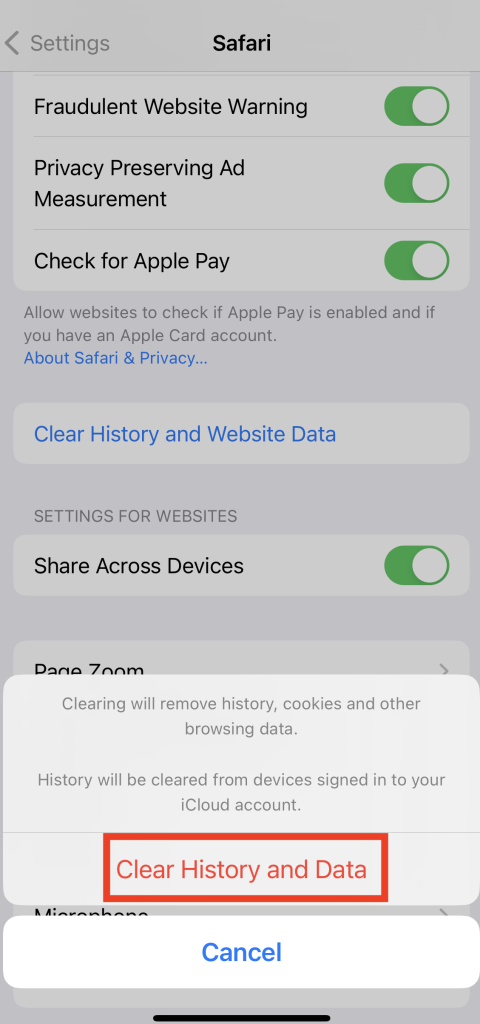Love cats in tutus? We’re all entitled to privacy, but our devices can be a mirror to our digital soul. To keep your online activities between you and your computer, it’s helpful to delete your search history. Then if anyone else has access to your machine, they’ll be looking at a blank slate. Read on to find out how to truly wipe away your traces online. If you’re looking to clear more than your search history, consider a tool like Avira System Speedup. The clue is in the name.
Why it’s a great idea to delete your browsing and search history
You’re never invisible, and certainly not when you’re behind a computer screen. Like Hansel and Gretel in a digital forest, you leave crumbs wherever you go online. Just landing on this page means it’s already anchored in your search history! Did you use a search engine and type in something along the lines of “how to delete recent searches”? Now Google or one of its cousins has another chapter on you too…
The most obvious reason to regularly erase your search history is to protect your privacy. You may be thinking “But my browsing is harmless” and “I have nothing to hide…” (Really? Suri, send my browsing history to mum). Yet even the most innocuous online browsing and shopping can arm third parties with the personal information they need to act maliciously. For example: Imagine you booked flights to Ibiza for a summer vacation. You’ve given away where you live and when you’ll be away. Combined with other personal details (from your social media for example) and the rest of your browsing history, hackers can build a picture of you and use that information to steal your identity. This could allow them to act on your behalf online—and apply for a credit card or make online purchases in your name.
Now imagine if a hacker has one of your passwords. If you use short, memorable passwords that are easy to guess, it’s not difficult to crack them. And if a website you use is breached, your private details could be handed over like an early Christmas present. Armed with your search history, hackers will know which sites you visit most. Using your stolen password/s, they can then try to gain access to your online accounts. Don’t make life easy for third parties who may have malicious intentions! Security experts recommend using a password manager and deleting your search history regularly (and at least twice a month). Password managers help store your passwords more securely, away from prying eyes and can also generate highly complex passwords that are a hacker nightmare. The free Avira Password Manager comes with a pro version that also notifies you if your account details were seized as part of a data breach.
Beyond your online security and privacy, letting a lengthy search history build up can weigh your device down, so it performs more slowly. Over time, your browsing history records become cluttered with cache files, cookies, and autofill data. These leftover digital crumbs can eventually make up quite a weighty “cake”, filling up your Random Access Memory (RAM) and helping to slow down your PC, Mac, or mobile phone. Would you want to go running with loads of extra baggage? Help keep your machines lean and mean by cutting the clutter.
Speaking of digital crumbs, do you click “OK” or “Accept cookies” as soon as the little window opens as you land on a website? Most of us don’t give it much thought, but are you aware how these cookies are used? There are three flavors of online cookie: Session cookies are text files that are stored in a temporary browser and don’t collect your data. Stored cookies track online preferences, like your login details, to improve your website experience. They eventually expire. Third-party cookies are best left uneaten. They collect your data when you visit a website, and it may be shared with or sold to third-parties. Regularly deleting harmless cookies could help speed up your device. Third-party cookies should be declined as you’ll have no idea what could happen to your data. Also decline cookies on unencrypted websites as they aren’t protecting your personal information. If your antivirus software flags suspicious cookies, you should remove them too!
Safari and Firefox block third-party cookies by default and Google has pledged to stop using them by the end of 2023. Here’s how to check and change your cookie settings in Google Chrome but similar options are available in other browsers:
- Open Chrome.
- Click “More Settings” in the top right corner.
- Go to “Privacy and security” and click “Cookies and other site data”.
- Select an option: Allow all cookies. Block all cookies (not recommended). Block third-party cookies in Incognito. Block third-party cookies.
How to clear your search history in Google, Bing, and Yahoo
So, you’ve decided to wipe away your digital footprints and delete searches? Wise choice! The good news is that you can clear your search history across all your devices from the settings of your Google, Bing, or Yahoo accounts. (Make sure you’re signed in to your account. Then go to settings to access your search history. Here you can choose to view and erase specific activities). The bad news is that deleting your browser history will only clear the searches you made in that browser and on that particular computer. Your searches on other devices like your mobile phone will still be intact. This information is still available to others, like your internet service provider (ISP) and the owners of the websites you visited. Beware that advertisers can use this data to track you and send you targeted ads.
If you think you’re being extra clever by using incognito mode on your browser, you’ll be faced with a similar conundrum. In incognito or private browsing mode, tracking cookies are automatically blocked, and your cookie data and search history is removed from the browser as soon as you close the window. But… data from your browsing activity is saved to the accounts you’re logged into (such as your Google account). Plus, your ISP and other third parties may still have access to your browser activity even when you’re using incognito mode.
If it’s an avenue you’d like to explore, here’s an interesting blog packed with tips and tricks on private browsing options, as well as the information typically stored in your browser history. A VPN is also unmissable for those serious about online privacy. In addition to a VPN for Windows users, there is also a VPN for Mac, providing a private online experience specifically designed for Apple users. A virtual private network lets you go incognito, as it helps encrypt your communications so your ISP and any snoops can’t see your communications.
If someone lays their hands on your device and you truly want to make your search history disappear, you’ll have to take these steps though:
Wipe your Google search history:
- Log in to your Google account by clicking the menu (that’s the square of tiny dots in the right-hand corner of the screen). Choose “Account” to open your account settings.

- Then click on “Data & privacy” in the menu on the far left.

- Scroll down until you see “History settings”. Click “My Activity” at the bottom.

- You’ll now see a list of links and websites. You can remove a site or the history from a particular day by clicking on the X icon next to the item.

- You can also erase your entire history by clicking the “Delete “button under the activity search bar. A pop-up appears. Choose “All time” or select a custom range and then click “Delete” to confirm that you really want to erase your history.

Top tip! Adjust your search history settings to help manage what is tracked and stored in the future. Go to “Data & privacy” and find “History”. Click the activity you want Google to stop tracking, such as “Web & App Activity”. Here you can also click “Turn Off” to prevent Google from saving your search history in the future.
Delete your Bing search history:
- Navigate to the Bing homepage and sign in to your Microsoft account.
- Click on the four horizontal bars next to your login and then click “Search history” in the dropdown menu.
- On the new page that opens click “Clear search history” on the right-hand side. Your cache should now be empty! You can also remove each item individually.
Top tip! You can surf privately in Bing, so you won’t have to go back and delete your search history later. Click on the three dots on the right-hand side of the search bar. In the drop-down menu, choose “Search settings”. Move the “Private mode” button to “on”. Now you can happily browse without the websites appearing in your search history.
Clear your Yahoo! search history:
This browser automatically saves your searches but yay (sorry Yahoo!) it’s easy to clear them.
- Visit .search.yahoo.com/history or log in to your Yahoo account on the Yahoo search page by clicking on the gear icon.
- Select “Search History”.
- Click the garbage bin icon next to each item that you want to remove.
- To erase your entire search history, click “Clear History”, and then choose “Delete” in the pop-up menu that appears.
Top tip! You can easily prevent Yahoo from saving your search history by selecting “Turn History Off”. This button is clearly and conveniently located at the bottom of the list of your searches.
Why stop there? You’ve now managed the settings in your accounts like Google to improve your privacy, but your web browser still needs work to afford you even greater protection. Read on. Deleting your browser history is largely the same across the major browsers. We’ve picked the most popular below.
Step-by-step guide: Erase your search history in Google Chrome
- Open Chrome.
- Click the three dots (also known as the kebab) in the upper-right corner.
- In the drop-down menu, choose “History”. On the expanded menu, click “History” again.
- A list of websites you’ve visited appears. To delete a specific website, click on the three vertical dots next to it and then select “Remove from history”. To remove multiple websites at once, check the small box to the left of each website you want to get rid of before selecting “Remove from history”.
- Select “Clear browsing data” from the left-hand column.

- A pop-up window opens. Keep the box next to “Browsing history” checked. You can also delete cookies and cached images and files by checking the relevant boxes.

- Click “Clear data” at the bottom to confirm and delete your selection.
Follow similar steps to clear browsing data on a phone. To wipe away digital traces on an Android device, open the Chrome app and click on the icon of three vertical dots in the upper right corner. Click on “History”. Individually delete items by clicking on the X symbol or hit “Clear browsing data” to erase your entire browsing history.
Top tip! Navigate through the “Privacy and security” tab to view and adjust other privacy settings. You can choose to block third-party cookies, review Google’s key privacy and security controls in the Privacy Guide, block pop-ups, and more.
Step-by-step guide: Delete your search history in Safari
On a Mac
- From your home screen, left-click on the Safari button (you’ll find it next to the Apple icon in the top right corner of your screen).
- In the drop-down menu that appears, scroll down, and click on “Clear History”.
- A dialogue box then opens, advising you that “Clearing history will remove related cookies and other website data.” Choose the time range that you want to clear. In the drop-down box, you can select from the last hour, today and yesterday, or all history.
- Click on “Clear history” to confirm your selection.
On an iOS device (iPad or iPhone)
It’s equally essential to delete your search history on a phone and other mobile devices.
- Go to Settings and scroll down to find and click on Safari.
- Scroll down and select “Clear History and Website Data”, which is clearly written in blue.
- In the small window that opens, click on “Clear”.

Step-by-step guide: Delete your search history in Mozilla Firefox
- Open Firefox and click on the three horizontal lines in the top right corner to access the application menu.
- In the dropdown menu, scroll down to and click on “Library”.
- A second window opens. Select “History”.

- Click on “Clear Recent History”

- In the box that opens, choose the time interval plus which elements of your history that you want to remove —such as the cookies and cache.

- Click on “OK” at the bottom and you’re done!
Step-by-step guide: Delete your search history in Microsoft Edge
- Open the Microsoft Edge web browser. Navigate to the three horizontal dots in the top right corner of your screen and click on them to open your settings.
- In the drop-down menu that opens, select “History”.
- Your browsing history appears. Hover over an entry and an X symbol appears. Click here to remove this website from your history.

- Alternatively, click on the three-dotted icon in the top right of the history box (see image above) and select “Clear browsing data”.
- Choose the time interval and details that you want to clear and then click “Clear now”.

Please remember: Unless you take precautions, your digital life is an open book and your online search history the chapters within it. Regularly clearing your web history can help protect your privacy online and free up additional space on your device. PC cleaners like Avira PC System Speedup help remove online traces and temporary data from your browser, and then optimize the browser database to keep your disk clean.














